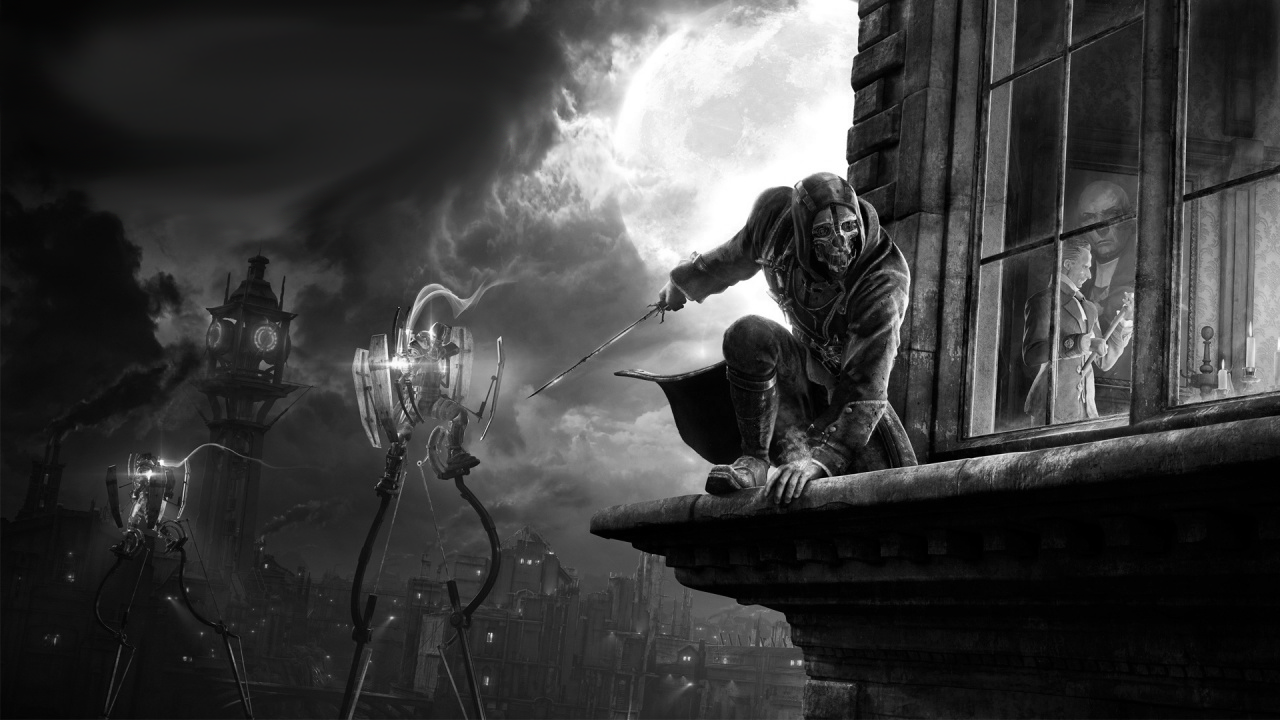Hey y’all, I did an article read for this piece if you would prefer to hear it instead of reading it! It is also available on the Irrational Passions Presents feed, and on RSS feeds as well!
I remember that fateful day like any other. It was in June 2011. I was just finishing the eighth grade, and when I got home my father got the latest issue of Game Informer magazine. The cover title was Dishonored. Little would I know about the overall impact this game would have on me as a person. I was enraptured by some of the minor plot details being shared in this issue, but the real thing which caught my attention was this idea of a “Chaos System”. It was a mechanical system which was focused on how you approached the world. Your direct actions would change the world around you. This was something which I had never encountered in games before, and this system changed my perspective and approach to level design.

The games I was playing at the time were simple in a mechanical sense. They had a clear-cut objective and showed me a clear path to accomplish that objective. Whether it was trying to perfect Tony Hawk’s Project 8, playing Splosion Man after getting home from school, or booting up Marvel Ultimate Alliance 2 with my brother and my dad, they were straight-forward in their respective design. “Go from point A to point B and have fun along the way.” When I read about the systems in Dishonored, I had never realized that games could be this mechanically complex, nor have systems that shifted the world in such a dramatic fashion.
Upon reflection, those titles that I played before Dishonored showed me that most games were extremely linear, and the majority of the time there was no deviation from the main path. So I brought that mentality to Dishonored, taking the obvious path no matter what the consequences were. This combined with my interest of the “Chaos System” made for an interesting experience.
One of the first in-game menus you see after starting the campaign presents you with the “Chaos System”. This system changed levels by adding more citizens affected by the rat plaque, and showing a society failing to combat the lethal disease. The more you killed, the more this became visible. It was the opposite when playing non-lethally.

I understood the core concept of what it was doing, but it wasn’t until I finished the game for the first time that the idea of the system actually clicked. My first playthrough, I spent it killing enemies and when I reached the end, I was puzzled why the ending wasn’t really good. I saved the empire of Dunwall and my daughter Emily Kaldwin. Why did things turn out so bad? Then the text showed up – “High Chaos”. This was because of my actions. I approached the world in ways which shaped Dunwall’s fate to be tragic and brutal. I was frustrated.
I spent so much time boiling over what I could have done differently. Then it clicked with me: my choices lead me to deal with an unsavory ending, which made me feel bad. The answers to my frustrations were right in front of me. Instead of taking lives I decided to re-play the campaign in a completely different way. If I played the game non-lethally, then I would have gotten the ending I wanted, and this would have drastically changed how I viewed the game.
 This was the moment that changed my perception of games and made me find my love of Immersive Sims. When I first played Dishonored, I was like a novice carpenter. I had the tools, and some basic understanding of how to use them, but it wasn’t until I fully realized the potential of those tools that it all made sense.
This was the moment that changed my perception of games and made me find my love of Immersive Sims. When I first played Dishonored, I was like a novice carpenter. I had the tools, and some basic understanding of how to use them, but it wasn’t until I fully realized the potential of those tools that it all made sense.
This Eureka moment was truly special. Not only did I begin to approach the game in a completely different manner, I began to understand the impact that player agency had on this world. By vowing to not kill anyone, no matter what it takes, everything changed. My approach to my tools changed, the Blink ability was no longer this tool which transported me from checkpoint to checkpoint ruthlessly taking out guards. I used it to get to vantage points and access possible routes to take instead of taking the clear cut path.
Playing the game in this manner was a completely different experience, and it showed me different spaces which were off the beaten path. It introduced me to the character of Granny Rags, and taught me that the solutions to my problems could be solved in unorthodox ways. Thinking about the systems in ways of navigation and traversal made the world open up. Finding those non-lethal takedowns on targets slowly began to prove more rewarding than plain murder. Those rewards being: feeling a creative fulfillment which I didn’t know I needed, granting me the ending I desired, and making me begin to care for the citizens of Dunwall by helping them overcome class differences.
Dishonored is an experience which still sticks me to this day, and how it changed my approach to games, as well as how I think about their systems. From that moment, I no longer looked at games with that objective-to-objective basis, but instead as open ended and try to take the unconventional path.







